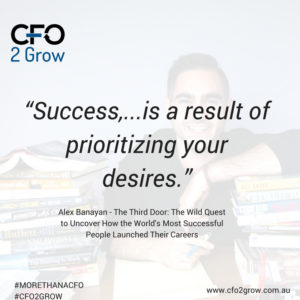04 Jul Busyness: Being Busy is Nothing to Brag About
 “Busy-ness is a dangerous trap that relinquishes your control to find meaning and fulfilment in life when you are stuck in the quicksand of being busy.” – Caroline Dowd-Higgins (Huffington Post)
“Busy-ness is a dangerous trap that relinquishes your control to find meaning and fulfilment in life when you are stuck in the quicksand of being busy.” – Caroline Dowd-Higgins (Huffington Post)
Rabbi Sacks in his weekly Blog titled “In the Diary[1]”, says that 50 years ago, the most widespread prediction was that by now almost everything in the world would be automated, the work week would be 20 hours and our biggest problem would be what to do with all our leisure. Instead, most people today find themselves working harder than ever with less and less time to pursue the things that make life meaningful.
My mother often asks me how things are at work and I say that I am busy. She always responds, “Busy is Good!”. BUT, journalist, Hugh Mackay[2] says “Busyness is the greatest of all excuses…in this culture of busyness … we praise their busyness, we admire it, we respect it…”
In Hugh Mackay’s article he lists 3 problems with our addiction to busyness:
- Lack of sleep;
- Fear of stillness, solitude, inactivity and boredom; and
- Distraction from the needs of the people around us.
Rich Roll asks, “Balance, what is work life balance?” How do we navigate the line between our personnel and professional lives? How do we manage this busyness?
In an article by Linda Blair entitled “Embrace Boredom, it has its benefits”. She states that most of us consider boredom to be aversive and something that we should try to avoid but claims that there is evidence that boredom leads to more productive thinking. When it comes to generating creative possibilities (divergent thinking) and when we need to find logical solutions to problems (convergent thinking), boredom motivates us to act.
Linda Blair[3], says that one of the problems of a goal obsessed society that has this narrow focus on achieving goals, is that our lives become unbalanced. She does not say that goals are bad or being goal orientated is a bad thing, but she says that once achieved or completed, we need to allow recovery time. Time to spend with family, friends and doing the hobbies we love.
“Time management is more than management and larger than time. It is about life itself” – Rabbi Jonathan Sack. According to Rabbi Sacks, we should all use a diary and not rely exclusively on To Do Lists. He says that the most successful people schedule their most important tasks in their diary, that unless the task is in their diary, it won’t get done. To do lists are useful but not sufficient. They remind us of what has to be done, but not when. A diary connects what with when.
In Alex Banyan’s Book, “The third door: The Wild Quest to Uncover How the World’s Most Successful People Launched Their Careers”, he credits some advice to Warren Buffet. It is alleged that Buffet suggests if you have 25 items on a to do list, select the 5 most important and put them on a separate list called Priority and the rest Secondary.
In a podcast with Rich Roll and his wife Julie, she maintains that we all need to schedule time for our relationships.[4] Your relationship is as important as any other project.
Minimalist, Jonathan Fields in his Blog posts often talks about Busyness. He says that, individuals and organisations all too often wear busyness as a badge of honour[5]. Reactive busyness, pace without a purpose, taking on more than the next person without regard to whether it really matters is how we’re taught we get ahead. Except, it’s a lie. Fields calls this “Reactive Life Syndrome”. He says that “Reactive Life Syndrome” is not a badge of honour, it is a symptom of surrender. He calls this his Unbusy manifesto,[6] your awareness is a wakeup call that shakes you from living on autopilot in a reactive and maniacally busy life into owning the possibility and responsibility to choose your behaviour from this moment forward. It’s a call to reclaim your humanity, live from a place of intention, space and grace.
In a recent Kwik Brain Podcast with Jim Kwik[7], he says that there are times in life where you might find yourself overwhelmed. You might have a long to-do list, insane demands, and not enough time. All these action items may appear to be high priority tasks, and you’re carrying the weight of it all. He says that we need to “… work smart, not just hard …” He goes on and says that you need to become more efficient.
We all need to abolish the busy brag and focus on a life and career with meaning, value, and joy. Don’t forget to add playtime to your day and reach out to your accountability partners for support and encouragement.[8]
So as Hugh Mackay ends, the next time someone asks you if you are busy, consider how you might respond…
[1] Covenant & Conversations – Torah Portion Emor 2018
[2] The Saturday Herald Sun – 21 April 2018
[3] Having a Goal is good but …. – The Age 13 June 2018
[4] The Mind Body Green podcast – Episode 57
[5] https://qz.com/845419/jonathan-fields-the-unbusy-manifesto-how-to-slow-down-chill-out-and-live-life-more-intentionally/
[6] http://www.jonathanfields.com/unbusy/
[7] https://itunes.apple.com/au/podcast/64-work-smart-not-hard/id1208024744?i=1000415081076&mt=2
[8] https://www.huffingtonpost.com/entry/being-busy-is-nothing-to-brag-about_us_5a4b9a6de4b0d86c803c7971

